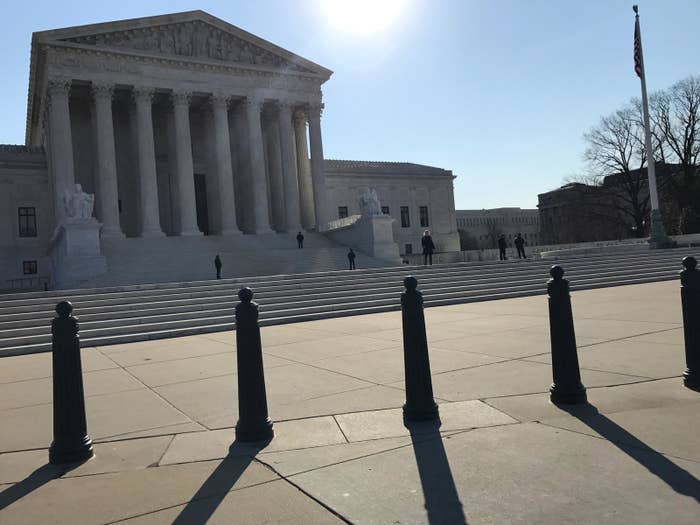
WASHINGTON — The Supreme Court will not be hearing the transgender student's case that the justices had agreed this past fall to hear, the court announced Monday.
The case instead will be sent back to the appeals court that previously heard Gavin Grimm's challenge to the Gloucester County School Board policy limiting restroom use to a person's biological sex.
Due to the Trump administration's decision to withdraw pro-transgender guidance that had been key to the appeals court's decision in favor of Grimm, the justices vacated that decision and asked the lower court to reconsider the case.
Lawyers for both the school board and the student had asked the justices to keep the case and resolve the larger question about whether the sex discrimination ban in Title IX of the Education Amendments of 1972 includes a ban on anti-transgender discrimination as well. The justices declined to do so.
Now, the US Court of Appeals for the Fourth Circuit will need to address that larger question. When it heard the case initially, it avoided answering that question, instead ruling on the basis of deferring to the Obama administration's guidance that it had interpreted Title IX and its implementing regulations to provide that protection. After ruling that Title IX and its implementation regulations are ambiguous on the question of transgender protections, it then held that the Obama administration's pro-transgender interpretation was a permissible interpretation.
With that guidance withdrawn — the Trump administration took no position on the underlying question — the question of whether the statute itself protects transgender people from discrimination will need to be resolved. The Supreme Court — perhaps wanting the issue to percolate a little longer or at least wait until there are nine justices — will, with Monday's move, avoid having to answer that question for the time being.
